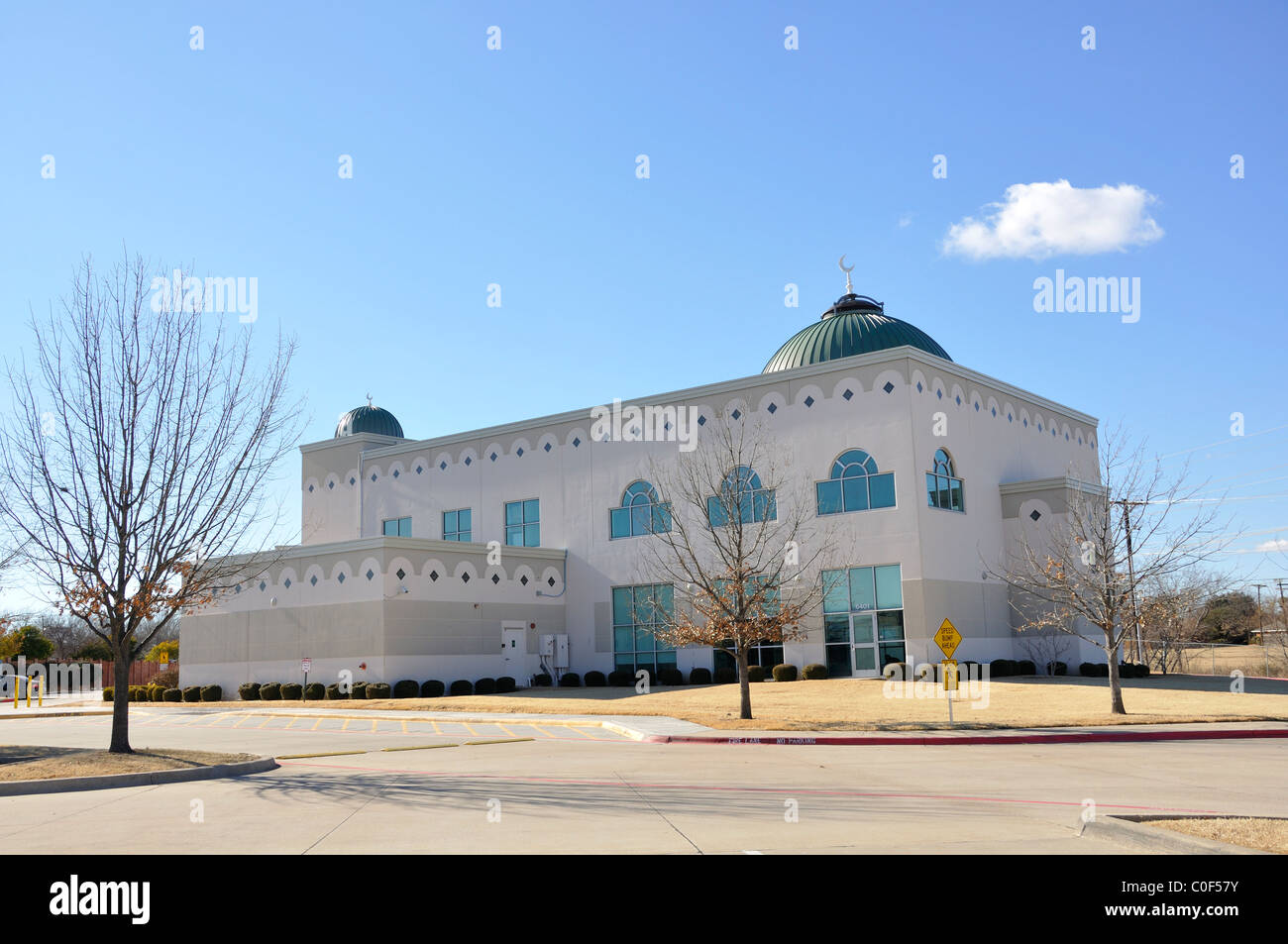Restrictions On Texas Mosque: Concerns For Local Muslim Community's Growth

Table of Contents
Zoning Laws and Their Impact on Mosque Construction
Navigating Complex Zoning Regulations
Texas zoning laws, while ostensibly neutral, often present disproportionate challenges for the construction of mosques compared to other religious buildings. The intricacies of these regulations can create significant obstacles for Muslim communities seeking to build or expand places of worship.
- Lengthy approval processes: Many communities report experiencing significantly longer wait times for mosque construction permits than for other types of buildings.
- Restrictive parking requirements: Excessive parking requirements, often not enforced on other religious buildings, place an undue financial burden on mosque projects.
- Unclear or ambiguous regulations: Vague language in zoning ordinances can be interpreted subjectively, leading to arbitrary denials of permits.
- Case Study: In [City Name], a proposed mosque was denied a permit due to concerns about "traffic congestion," despite similar concerns not being raised for a recently approved church in the same area. This highlights the potential for discriminatory application of zoning regulations.
- Keywords: Texas zoning laws, mosque construction permits, religious land use, discriminatory zoning, building codes, land use regulations
The Financial Burden of Legal Challenges
When faced with denials or significant delays in obtaining building permits, Muslim communities are often forced to engage in costly legal battles to protect their religious freedom. This places a significant financial strain on already limited resources.
- High legal fees: The cost of hiring legal counsel specializing in religious land use and zoning disputes can be prohibitive for many communities.
- Fundraising difficulties: Raising the necessary funds for legal challenges can be difficult, diverting resources from other essential community programs.
- Impact on community resources: The financial burden of legal battles can strain community resources and hinder other vital initiatives, such as educational programs and charitable work.
- Keywords: legal fees, mosque funding, community resources, religious freedom litigation, legal representation, fundraising
Community Growth and the Need for Adequate Mosque Facilities
The Growing Muslim Population in Texas
Texas's Muslim population is experiencing significant growth. This demographic shift necessitates an increase in the number of mosques to adequately serve the community's needs for prayer, religious education, and social gatherings.
- Population statistics: According to [Source - e.g., Pew Research Center], the Muslim population in Texas has increased by [Percentage]% in the last [Number] years.
- Projections for future growth: Experts project continued growth in the Muslim population, further highlighting the need for additional mosque facilities.
- Current mosque capacity: Many existing mosques are operating at or above capacity, leading to overcrowding and limited space for community programs.
- Keywords: Texas Muslim population, demographic trends, mosque capacity, religious infrastructure, population growth, community needs
The Importance of Mosques for Community Cohesion
Mosques serve as vital hubs for Muslim communities, providing not only spaces for prayer but also essential community services and social support.
- Religious education: Mosques often provide religious education for children and adults, teaching Islamic principles and values.
- Charity work: Many mosques are actively involved in charitable work, providing assistance to those in need within their communities.
- Social gatherings: Mosques serve as gathering places for social events, fostering a sense of community and belonging.
- Prayer spaces: The availability of adequate prayer spaces is crucial for fulfilling the religious obligations of Muslims.
- Keywords: community services, religious education, social support, Islamic centers, community building, religious observance
Potential for Discrimination and its Legal Ramifications
Instances of religious discrimination in the application of zoning laws or other regulations affecting mosque construction cannot be ignored. This potential for bias requires careful examination and potential legal action.
- Unequal treatment: Discriminatory practices might involve applying stricter standards to mosque construction than to similar projects from other religious groups.
- Religious profiling: Subjective interpretations of zoning regulations could disproportionately target mosques based on religious prejudice.
- Legal precedents: Cases involving religious discrimination in zoning have established legal precedents that can be used to challenge such practices.
- Legal avenues: Muslim communities facing discrimination have legal recourse through the courts, potentially invoking the Religious Land Use and Institutionalized Persons Act (RLUIPA) and other civil rights laws.
- Keywords: religious discrimination, equal protection, civil rights, legal action, religious freedom, RLUIPA
Conclusion: Addressing Restrictions on Texas Mosques for Sustainable Community Growth
The challenges faced by the Muslim community in Texas due to restrictions on mosque construction significantly impact community growth and well-being. Fair and equitable application of zoning laws and other regulations is crucial to ensure religious freedom and the ability of the Muslim community to thrive. Addressing these restrictions requires a multi-pronged approach involving legal action, community advocacy, and policy changes that promote inclusive zoning practices and prevent discrimination against religious minorities. By understanding the challenges faced by the Muslim community and advocating for change, we can ensure that all Texans have equal access to religious freedom and the ability to build thriving communities. Let's work together to overcome the restrictions on Texas mosques and foster a more inclusive society.

Featured Posts
-
 Angel Has Fallen The Impact Of Gerard Butlers Performance
May 13, 2025
Angel Has Fallen The Impact Of Gerard Butlers Performance
May 13, 2025 -
 Gerard Butlers Box Office Flop Finds New Life As A Netflix Hit
May 13, 2025
Gerard Butlers Box Office Flop Finds New Life As A Netflix Hit
May 13, 2025 -
 The Wonder Of Animals A Celebration Of Natures Creativity
May 13, 2025
The Wonder Of Animals A Celebration Of Natures Creativity
May 13, 2025 -
 The Inner Workings Of Adhd Exploring The Minds Of Those With Adhd
May 13, 2025
The Inner Workings Of Adhd Exploring The Minds Of Those With Adhd
May 13, 2025 -
 Zaschita Syna Muzh Nadezhdy Kadyshevoy I Skandal S Ogromnym Dolgom
May 13, 2025
Zaschita Syna Muzh Nadezhdy Kadyshevoy I Skandal S Ogromnym Dolgom
May 13, 2025
